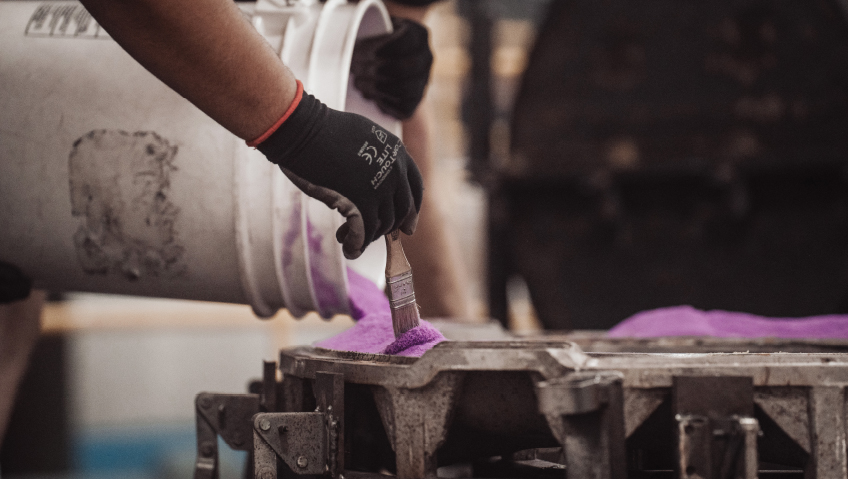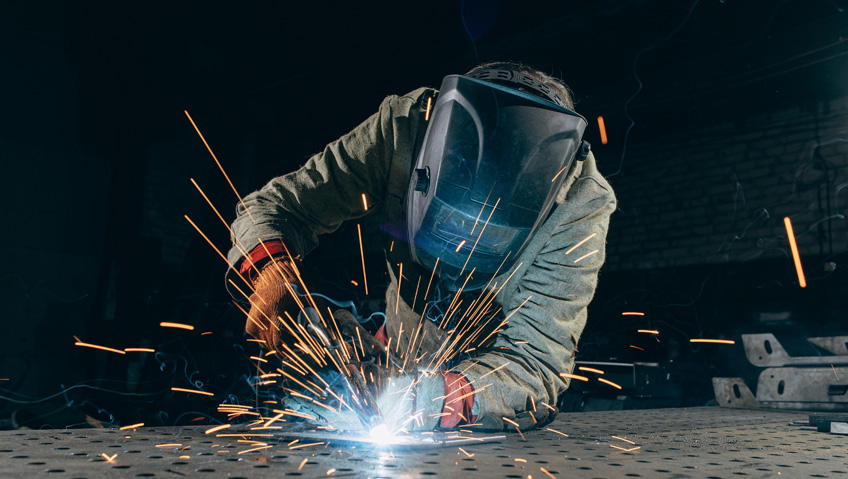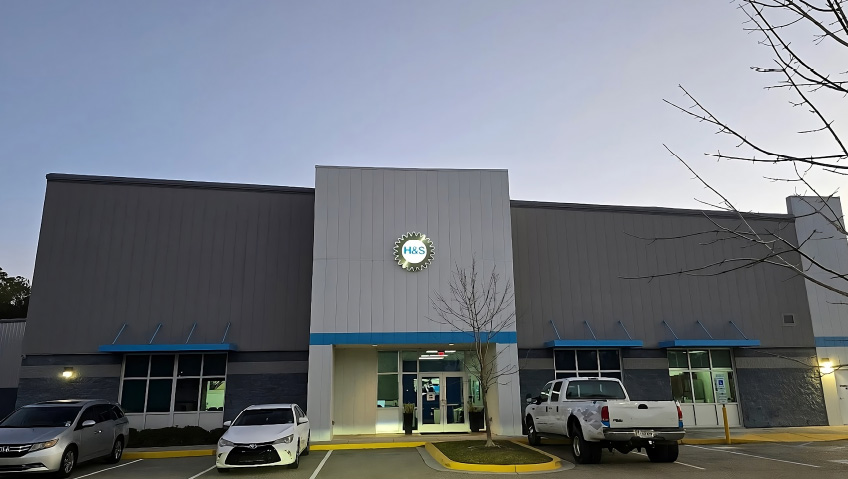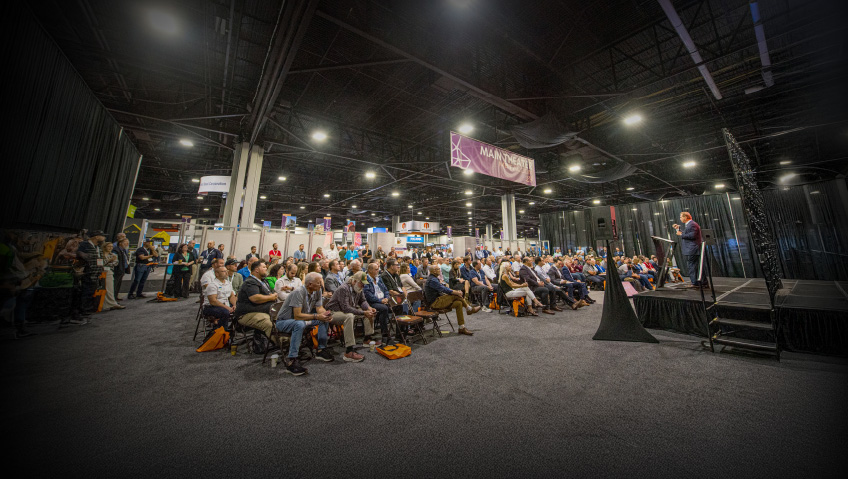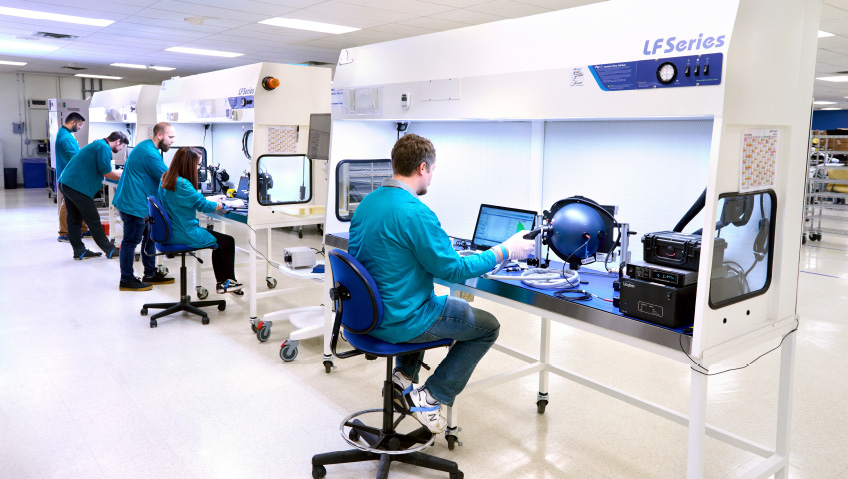For the team at Redline Plastics, keeping up with the competition isn’t good enough. To stay ahead of the pack requires commitment, ongoing investment in people and machinery, and broadening your service offerings. A great deal has changed in manufacturing over the past century, past decade, past year—and few companies realize this better than Redline.
Known as one of America’s top experts in plastics rotational molding, Redline’s success is the result of generations of planning, dedication to customers, hard work, vision, and leading, never following.
Redline’s roots go back to 1922. Starting as Dow Canvas, the company focused on the tent and awning industry for about 50 years. Purchased by the Webster family, the business expanded to include making covers for marine and power sports customers. The years to come saw the company acquire Premier Plastics and Leisure Designs, sell its marine division, and change its name to Redline Plastics.
One stop, many services
Committed to meeting the unique needs of all customers, Redline Plastics is a one-stop shop.
Handling everything from sourcing to manufacturing, finishing to assembly, and shipping means clients don’t have the stress, expense, and waste of working with multiple companies. Known for rotational molding, compression molding, and vacuum forming, Redline’s services also cover industrial cut and sew, fiberglass reinforced plastics (FRP), full-scale design engineering, and 3D printing and prototyping.
With two convenient locations—its Manitowoc, Wisconsin headquarters, and another manufacturing facility in Hartwell, Georgia—American and international clients know Redline has them covered from project start to finish.
Growth and acquisition
One of Redline’s greatest strengths has been its success in bringing other companies into the fold for the benefit of both business and customers. A recent one was Quality Holdings, with the acquisition finalized on March 20, 2023. Quality Holdings coming on board opened the compression molding market to Redline and expanded its geographic footprint.
“Quality Holdings was a strategic buy to get us to a different region of the country where we identified opportunity,” says company President, Nick Murray. “Logistically, we can serve our customers better as well as access customers in a different region and develop expertise in that area.”
For Murray, the strategic acquisition fits Redline’s growth plans in many ways, including location. At the small end of its products, the company makes parts such as handholds a few inches long for climbing walls. But at the large end, Redline has the machinery to mold parts up to 16 feet (4.87 m) in length, which makes for onerous shipping. Also sizeable are the various types of tanks made, which weigh from 300 to 600 pounds (136 to 272 kg).
“One of the nuances of rotational molding is that oftentimes we make very large parts that don’t ship well, so getting to different geographic regions helps us to compete logistically and also garner new areas of business,” says Murray. “Quality Holdings was one of those strategic buys that got us to the Southeast, where we identified a lot of rotational molding opportunities. There are some decent names in the area, but we felt we could compete.”
Providing Redline with tremendous upside potential, the Quality Holdings acquisition (now Redline Georgia) has seen some customers transfer locations. That way, clients get better shipping prices and other cost synergies. “It doesn’t matter to us where the business goes,” Murray says, “we’ll service it regardless. We’re more than happy to help our customers strengthen their business and maintain our relationship with them as well.”
Lightweight and durable
In past decades, many of the products Redline makes now were made from metal, which has its disadvantages. Unlike plastic products, steel and other metals are heavy. They corrode and will hold a dent instead of rebounding.
In recent years, Redline has seen a big switch from metal to plastics and an additional reason is that plastics, unlike metals, do not require welders to produce the products. “A lot of companies have transitioned from metal diesel tanks into rotationally molded plastic ones,” says company CEO, Chuck Webster. “You don’t need a welder. It’s lighter, stronger, lasts as long, and performs as well.”
Plastic also outshines metal for many other applications. These include municipal playground components such as slides, handholds, and roofs. Some other products now being made of plastic are equipment shrouds/cases, construction vehicle components, mechanical housings, bins and tubs, lawn and agriculture machine components, and floor cleaning components.
The non-rusting properties of plastic are crucial. “From durability to an environmental stress/longevity standpoint, many of the plastic solutions we offer are splendid for long-duration applications in many industries,” says Murray. And for makers of agricultural and construction equipment focused on smaller and more efficient engines, plastic means less weight. In the United States, many municipalities now also require dumpsters behind restaurants to have a plastic liner to prevent rust from seeping into groundwater.
To prevent this entirely, some restaurateurs are choosing all-plastic rotationally molded dumpsters, which are longer-lasting and easier to transport. “Lots of positives come from going with something that’s plastic instead of metal,” comments Webster.
Winning culture
At Redline, a cheerfully positive, sometimes irreverent company culture remains a powerful motivator for all employees.
“Rather than traditional corporate values like integrity, accountability, honesty, and similar boring and meaningless words or phrases, we developed cultural behaviors, actionable things that we all strive to do to build a place where we want to work,” says the company in the ‘How we Redline’ section of its website. “When we researched cultural behaviors, they were boring and did not resonate with us. So, we made our own! After all, who wants a career at a company that has bland values? That’s not our style!”
So, instead of preaching old clichés, the company’s pithy values include ‘Shut Up & Listen,’ ‘Be a Ninja’ (in taking personal responsibility), and ‘Recognize Awesome’ (for employees who go above and beyond). This upbeat culture has seen Redline named one of the ‘Best Places to Work’ by Plastic News for the fourth year in a row.
“We’ve worked hard to develop a culture where people want to work together but also function in a high-performing environment,” observes Murray. “Our ‘How We Redline’ culture describes our 14 cultural behaviors. And while we make them fun and entertaining, they all have large base meanings describing how we expect our employees to act in our organization. Many find it refreshing.”
Motivating staff, says Murray, comes from several directions. One is Redline’s diverse range of products, which encompasses consumer goods to components. “I think our employees love the diversity that they see regularly and seeing their product in the field or store,” he says. “Being a contract manufacturer for a large segment of our business allows us to see many unique projects that span many market segments, which is fun for employees. Likewise, for some of our invented product, people like to see the innovations we can bring to the market.” He adds that employees are incentivized through a quarterly bonus program based on performance.
To keep current and potential customers up to date with developments, Redline has a news page at redlineplastics.com/about-us/news/. Some recent recognition includes Plastic News’ Processor of the Year and third place on the Top 25 Fastest Growing Companies list for Northeast Wisconsin in 2024. Other honors include being nominated for the Manitowoc Chambers Awards of Distinction, being a finalist for the Wisconsin Manufacturer of the Year award for the last three years, and receiving the Energy Excellence Award from Focus on Energy.
Redline is proud of its long-time partnership with the Lighthouse Recovery Center as a recovery-friendly employer and recently received the Recovery Ally Employer Award.
“Many of our employees are on their road to recovery and sustainment, and we have formed a great relationship with this recovery center and have benefited from many of the great employees who have come from their program,” says Murray. “We see this as an opportunity to give back to the community. That’s one of our driving factors, and it’s worked out to be a great partnership. They are good people trying to get their lives back together, and it’s something we can be proud of.”
Future footprint
In the future, Redline plans to continue growing through sensible business execution and employing more good people. Webster envisions the company pursuing more areas of the domestic market in the short term, and possibly internationally, while supporting its people, communities, and customers with its robust technical expertise.
“We’re looking at different parts of the country that we feel would be opportune for a rotational molder with the kind of expertise we have: able to do difficult projects, and still deliver what the customer’s looking for, what many other rotational molders aren’t capable of doing,” says Webster of the company’s footprint.
“Long-term, I see us in several different geographical locations outside of just Wisconsin and Georgia.”

